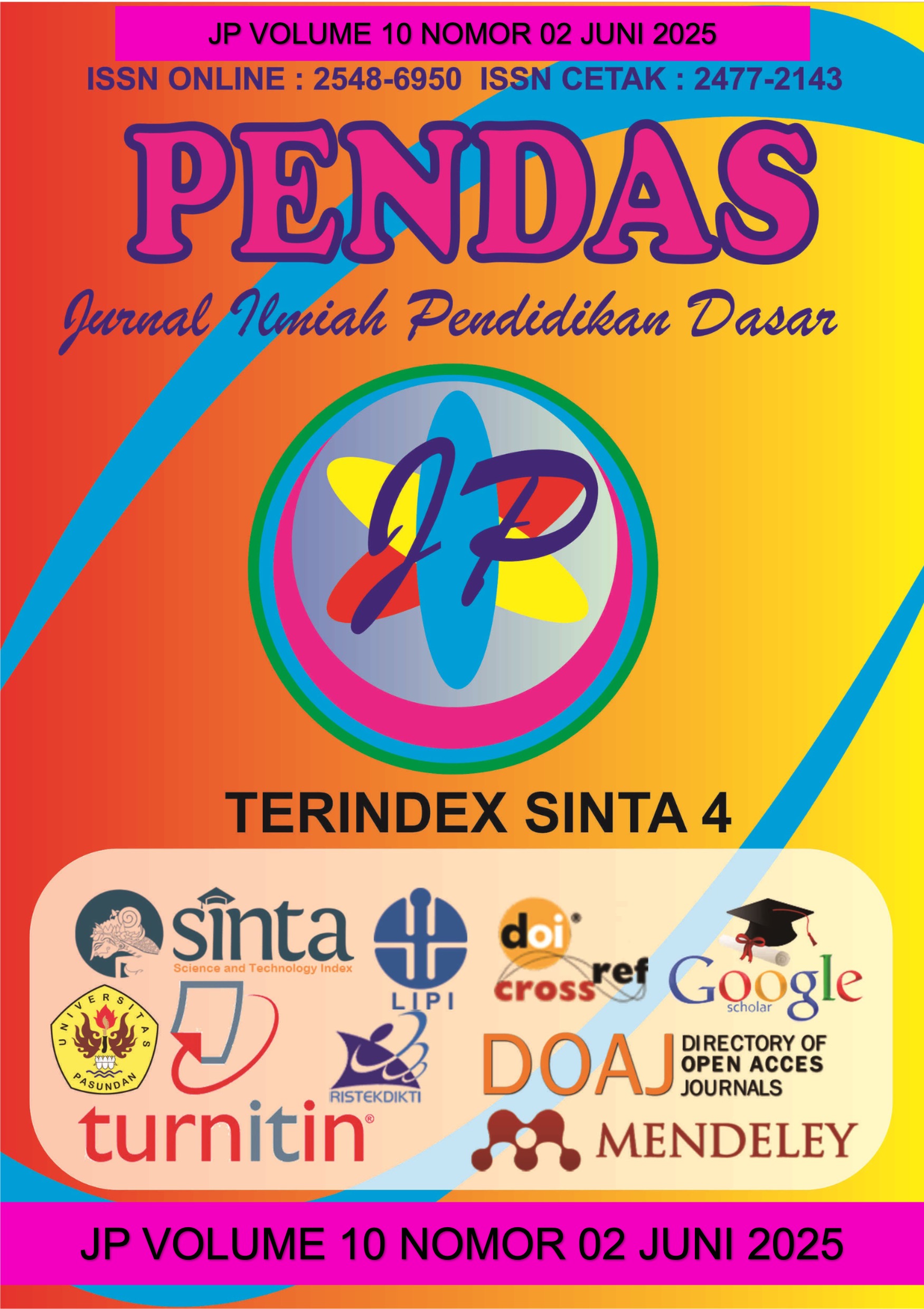Efektivitas Gamifikasi terhadap Keterlibatan Siswa dalam Pembelajaran Daring : Systematic Literatur Review
DOI:
https://doi.org/10.23969/jp.v10i02`.25918Keywords:
Gamification, Student Engagement, Intrinsic Motivation, Extrinsic Motivation, Online LearningAbstract
The problem faced in online learning is the low student engagement, which can affect their learning outcomes. Gamification, as an innovative approach, is expected to improve student motivation and participation in the online learning environment. This study aims to review the effects of gamification on student engagement, focusing on intrinsic and extrinsic motivation during online learning. The method used is a systematic review of articles relevant to this topic. The article review process involves examining studies that identify various elements of gamification, such as incentives, competition, collaboration, and formative assessment, and their impact on student engagement and motivation. The expected result of this research is to provide insights into how gamification can enhance student engagement, as well as to identify the most effective gamification elements in the context of online learning. Additionally, this study aims to offer practical recommendations for educators on how to implement gamification to improve learning effectiveness.
Downloads
References
Alajaji, D.A. (2021). Effect of combining gamification and a scavenger hunt on pre-service teachers’ perceptions and achievement. Journal of Information Technology Education: Research, 20, 283-308.
Anderson, C. A., & Barron, M. L. (2021). The impact of gamification on student engagement and motivation: A meta-analysis. Journal of Educational Technology, 42(3), 312-329. https://doi.org/10.1080/07480546.2021.1876999
An, Y. (2021). A Qualitative Investigation of Team-Based Gamified Learning in an Online Environment. Educational Technology Research and Development, 69(4), 1141-1158.
Baker, J. D. (2022). Exploring the barriers to student engagement in online learning environments. International Journal of Educational Research, 75, 54-67. https://doi.org/10.1016/j.ijer.2021.101493
Chen, C.-M. (2023). A Gamified Instant Perspective Comparison System to Facilitate Online Discussion Effectiveness. Educational Technology & Society, 26(2), 45-58.
Deci, E. L., & Ryan, R. M. (2017). Self-determination theory: A macrotheory of human motivation, development, and health. Canadian Psychology/Psychologie Canadienne, 58(3), 182-193. https://doi.org/10.1037/cap0000091
Deterding, S., Dixon, D., Khaled, R., & Nacke, L. (2019). From game design elements to gamefulness: defining" gamification". In Proceedings of the 2019 Annual Conference on Human Factors in Computing Systems (pp. 1-14). https://doi.org/10.1145/1753326.1753354
Filho, R. (2023). Experiencia Gamificada na Aula Remota de Matematica com a Plataforma Quizizz. Journal of Educational Technology, 52(1), 23-36.
Gupta, R., & Kim, H. (2021). Improving student engagement in online learning: A framework for effective virtual classrooms. Journal of Educational Computing Research, 59(2), 225-249. https://doi.org/10.1177/0735633121992735
Gupta, S. (2022). Gamification and e-learning adoption: a sequential mediation analysis of flow and engagement. Computers in Human Behavior, 130, 107174.
Lee, J., & Hammer, J. (2020). Gamification in online learning environments: A review of the literature. Educational Technology & Society, 23(2), 14-25. https://doi.org/10.1111/jets.13140
Page, M. J., McKenzie, J. E., Bossuyt, P. M., Boutron, I., Hoffmann, T. C., Mulrow, C. D., Shamseer, L., Tetzlaff, J. M., Akl, E. A., Brennan, S. E., Chou, R., Glanville, J., Grimshaw, J. M., Hróbjartsson, A., Lalu, M. M., Li, T., Loder, E. W., Mayo-Wilson, E., McDonald, S., … Moher, D. (2021). The PRISMA 2020 statement: An updated guideline for reporting systematic reviews. The BMJ, 372. https://doi.org/10.1136/bmj.n71
Ramírez-Donoso, L. (2023). Fostering the use of online learning resources: results of using a mobile collaboration tool based on gamification in a blended course. Interactive Learning Environments, 31(6), 1234-1250.
Ryan, R. M., & Deci, E. L. (2020). Self-determination theory and the facilitation of intrinsic motivation, social development, and well-being. American Psychologist, 55(1), 68-78. https://doi.org/10.1037/0003-066X.55.1.68
Saud, S. (2022). Leveraging Bamboozles and Quizziz to Engage EFL Students in Online Classes. Language Learning & Technology, 26(2), 91-104.
Taşkın, N. (2023). Effects of Gamification on Behavioral and Cognitive Engagement of Students in the Online Learning Environment. Journal of Educational Computing Research, 61(5), 1089-1107.
Videnovik, M. (2022). Migration of an Escape Room–Style Educational Game to an Online Environment: Design Thinking Methodology. JMIR Serious Games.
Vygotsky, L. S. (1978). Mind in Society: The Development of Higher Psychological Processes. Harvard University Press.
Zainuddin, Z., Sulaiman, T., & Samad, A. A. (2020). The effectiveness of gamification on student motivation and engagement: A systematic review. Asia Pacific Education Review, 21(1), 29-41. https://doi.org/10.1007/s12564-019-09516-7
Zainuddin, Z. (2024). Integrating ease of use and affordable gamification-based instruction into a remote learning environment. Journal of Educational Technology & Society, 27(3), 98-112.
Downloads
Published
Issue
Section
License
Copyright (c) 2025 Pendas : Jurnal Ilmiah Pendidikan Dasar

This work is licensed under a Creative Commons Attribution 4.0 International License.














































